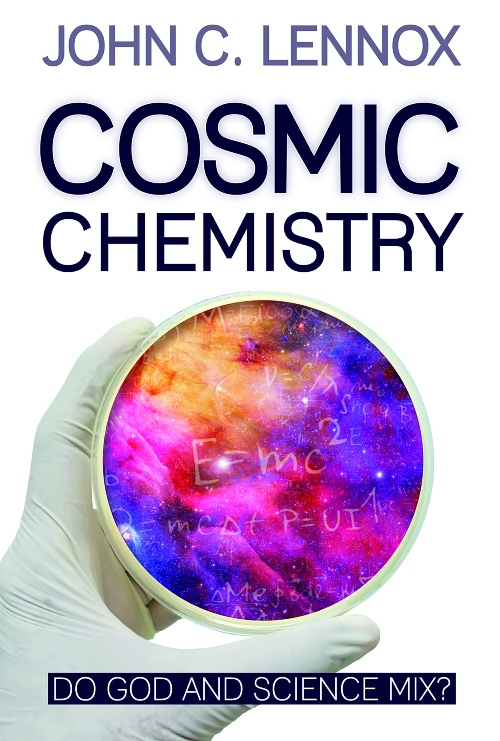Cosmic Chemistry - Do God and science mix? By John C. Lennox
Presents a comprehensive guide to the historic debates around the co-existence of scientific investigation and the existence of God - and will hopefully regenerate your faith
 Cosmic Chemistry - Do God and science mix?
Cosmic Chemistry - Do God and science mix?
By John C. Lennox
Lion Books
ISBN 978 0 7459 8140 6
Reviewed by Martin M’Caw
John Lennox is Emeritus Professor of Maths at Oxford University and Emeritus Fellow in Maths and the Philosophy of Science at Green Templeton College, which is a graduate community at the heart of the University of Oxford. This college brings together students, academics and practitioners with a particular focus on business and management, health and medicine, and social sciences.
Cosmic Chemistry is a book that exercises the brain especially, if like me, you were a duffer at science in school. When I was chaplain to Mold Squadron of the RAF cadets, a very bright cadet told me just after a padre’s session that science has disproved the existence of God. Not to be outdone I replied that wasn’t the case because God had invented science. Cosmic Chemistry presents a most comprehensive guide to the historic debates around the co-existence of scientific investigation and the existence of God, with 20 pages of reference at the end.
The book begins with an historical survey of the debate and reflects the limits of science in the allegory of Matilda’s cake. She has baked a beautiful cake which is taken to a group of the world’s top scientists for analysis. The nutrition scientists explore the calories, the biochemists concentrate on the structure of the proteins. The chemists investigate the elements involved. The physicists concentrate on the fundamental particles, and the mathematicians offer a set of elegant equations to describe the behaviour of the particles.
The scientists give detailed analyses of how the cake was made and how the constituent elements relate to each other. What they cannot tell is who made the cake and why.
John Lennox carefully considers the balance between science and Christian faith. Section 6 is key, under the heading of ‘Science and Explanation’ where he examines Theism and its relationship to Science, God of Gaps, Complexity of God and Miracles.’
The climax of his review of science and Christian faith is comprehensively set out in the ‘Epilogue: Beyond Science but not beyond Reason.’ Given the twin considerations of ‘How’ and ‘Why’ he states ‘Since no explanation that does not involve a mind seems to work, it is surely perfectly rational to accept an explanation that does.’ He adds that the notion of science and God form ‘a rational conjunctive explanation, the notion that they are alternative conflicting explanations stems from failure to distinguish between different kinds of explanation – mechanism and agency.’ We’re back to Aunt Matilda’s cake.
You don’t have to be a scientist or a theologian, an atheist or a Christian to benefit from reading Cosmic Chemistry. It may take time to work through it. It may challenge your perspective on the universe and God, but your mind will have been invigorated and hopefully, faith regenerated. It’s worth every penny.
The Revd Dr Martin M’Caw (Retired Baptist Minister and Wing Chaplain No2 Welsh Wing RAF Cadets)
Baptist Times, 11/02/2022